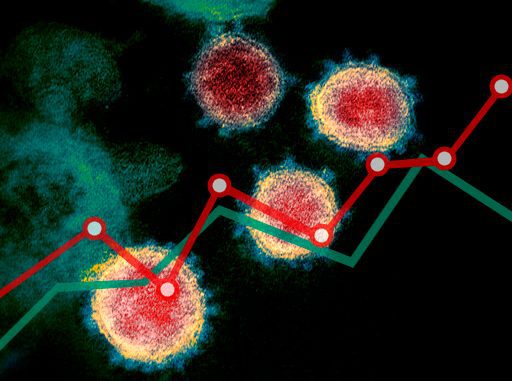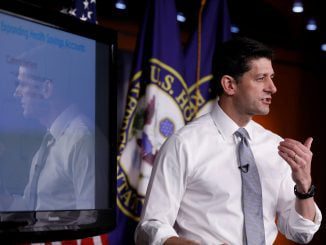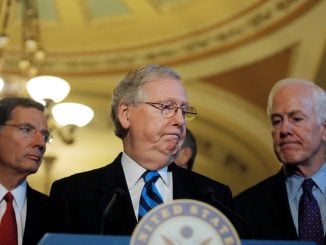
RALEIGH — As Gov. Roy Cooper announced Friday a statewide stay-at-home order starting Monday, he said the additional restrictions on all North Carolinians were required to prevent hospitals from being overrun by cases of COVID-19. But, the data used for his decision-making is incomplete, according to scientists.
The order came the same day the N.C. Dept. of Health and Human services added a hospital bed tracker to its web site. That tracker, which listed 18,256 total beds and 7,184 empty on March 27, included a disclaimer that the data included 81% of hospitals. That tracker says that as of Saturday morning, 87 people were currently hospitalized in N.C. with COVID-19. North State Journal reached out for clarification on which hospitals had provided data. “The information on the web is what we have available right now,” said Kelly Haight Connor, Communications Manager for NCDHHS. “I don’t have a hospital breakdown at this time.” Inclusion or exclusion of a few large hospitals could dramatically affect hospital availability figures.
State data on the number of COVID-19 tests performed also carries a disclaimer that the “number reflects testing completed by the NC State Laboratory of Public Health and reporting hospital and commercial laboratories.” NCDHHS did confirm that the number of tests included reports from the N.C. State Laboratory of Public Health, LabCorp, UNC Health, Duke University Health System and Atrium Health. “All the laboratories that send NCDHHS electronic lab reporting and perform COVID-19 tests in-house report non-positive COVID-19 results for the tests performed in-house,” said Sarah Lewis Peel.
The list of labs provided by NCDHHS did not include other large labs like Quest Diagnostics and Sonic Healthcare which also performs routine lab tests in N.C. “In the case of North Carolina, we are reporting results of positive COVID-19 test results to the North Carolina Department of Health,” said Rachel Carr of Quest Communications. Sonic Healthcare did not return requests for comment from North State Journal. NCDHHS did not respond to additional questions about other labs performing tests.
The COVID Tracking Project presents North Carolina’s COVID-19 data with the disclaimer “Negatives are calculated from total positives (public and commercial labs) and total tests (which only includes public labs and partial data from hospital and commercial labs).”
As of Friday, N.C. had one of the lowest postive test result percentages on the COVID Tracking Project with with just 5% of tests returning positive. North Carolina disclosed over 15,000 tests performed which was 13th most among the 50 states and the District of Columbia. Only Minnesota had a lower percentage of positive cases in the top 15 states for completed tests. Public health experts said early that cases of COVID-19 would rise as testing ramped up. Discussing the disparity in data quality and the variability of positive percentages, Yale cardiologist Harlan Krumholz told the Washington Post, “We have no systematic strategy to do the kind of surveillance necessary to understand the chain of transmission. We’re basically flying blind because we have so little idea about its penetration into our society and the number of people affected.”
Public health experts can use negative test results to determine if an increase in cases are being driven by the epidemic or increased testing. “I think a lot of time people don’t realize the importance of negative results,” said Justin Lessler, a professor of epidemiology at Johns Hopkins and a lead writer on a study estimating the incubation period of the coronavirus to the Washington Post.
While data sets on testing results and hospital beds are incomplete, government agencies are also discouraging otherwise healthy citizens or suspected mild cases from being tested at all. “Testing is most important for people who are seriously ill, in the hospital, people in high-risk settings like nursing homes or long-term care facilities, health care workers and other first responders who are caring for those with COVID-19,” said the N.C. Department of Health and Human Services in a statement Thursday.
Discouraging broader testing can skew the fatality rate according to Hyacinth Empinado at Stat News. Calculating the case fatality rate at the outset of an outbreak like the coronavirus is difficult. The CFR is often referred to as the death rate and represents the number of confirmed deaths divided by the number of confirmed cases. Unreported cases can skew death rate calculations making the disease appear more deadly than it is.
Reliable data is important for decision-making according to N.C. Senate leader Phil Berger (R-Eden). “Government leaders are making decisions without the benefit of relevant and obtainable data,” said Berger in a Friday statement. “Unfortunately, they don’t know how prevalent the virus is and has been in the population. Therefore, we do not have sufficient, reliable information to understand true hospitalization and fatality rates.”
Berger recommended random sample testing of the population for COVID-19. “That necessary data is easily obtainable through random sample testing, which world-renowned scientists at Harvard and Stanford have been recommending for some time,” said Berger. “”We owe it to the hundreds of thousands of newly unemployed North Carolinians to check the math.”
Berger’s call for random testing comes as the math on other decision-making models is being scrutinized. One group, COVID Act Now, has been recommended as a decision tool for local leaders in N.C. according to public documents made available to North State Journal. The group’s data has also been relied on by leaders in other states when deciding to put in place “shelter in place” orders. COVID Act Now predicts over 200,000 hospitalizations in N.C. without drastic intervention and recommended shelter in place or “lockdown” as the only options to avoid hospitals being overloaded. The models used by COVID Act Now came from an Imperial College UK projection which predicted 2.2 million Americans and more than half a million Brits would be killed by the virus. The researcher behind that study, Neil Ferguson, is now backing of from his dire predictions on deaths and hospitalizations. Ferguson now says UK deaths from the disease are unlikely to exceed 20,000 “and could be much lower.”
On Friday, Governor Cooper tweeted that “NC is now considered by the CDC to have widespread transmission, meaning some people who have tested positive don’t know how they got it. Because no one is immune & there’s no vaccination the best tool we have to slow the spread is keeping our physical distance & staying home.” Even the notion that “no one is immune” is being questioned. Nobel Prize-winning Stanford chemistry professor Michael Levitt said he believes some of the world population is naturally immune to COVID-19. In an interview with the LA Times, Levitt also noted the incomplete data being used to document the outbreak but said, “Numbers are still noisy, but there are clear signs of slowed growth.”




